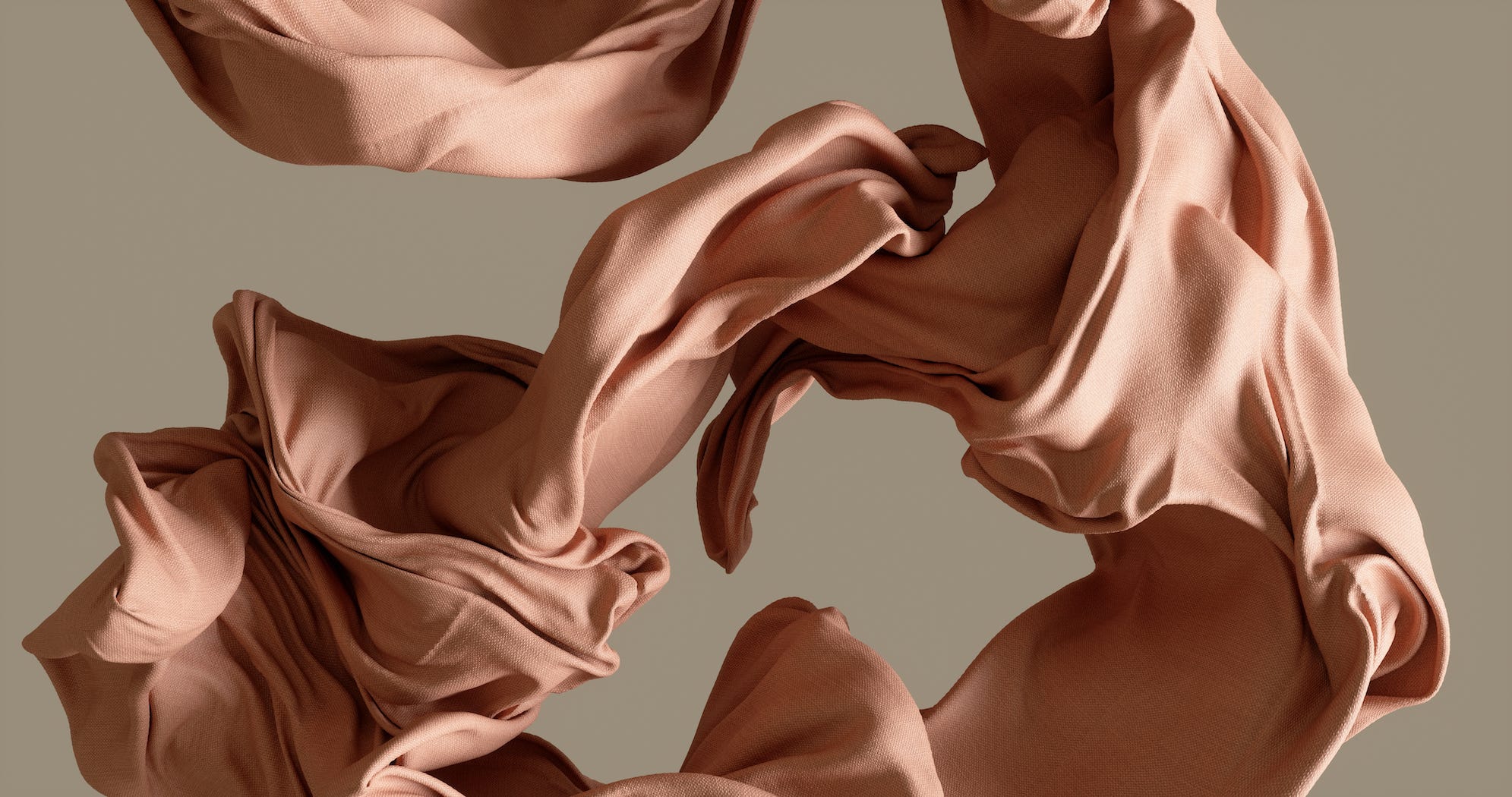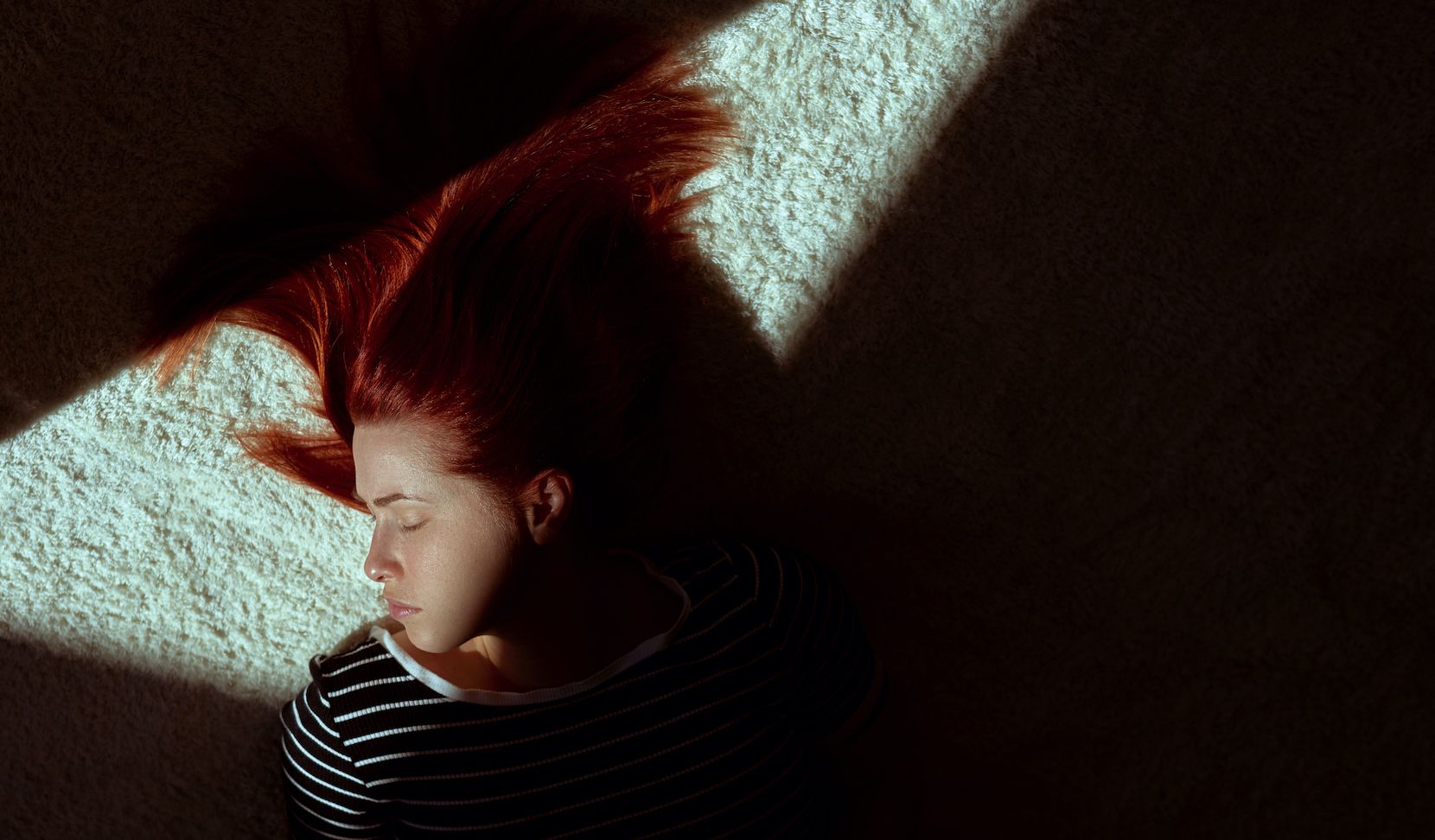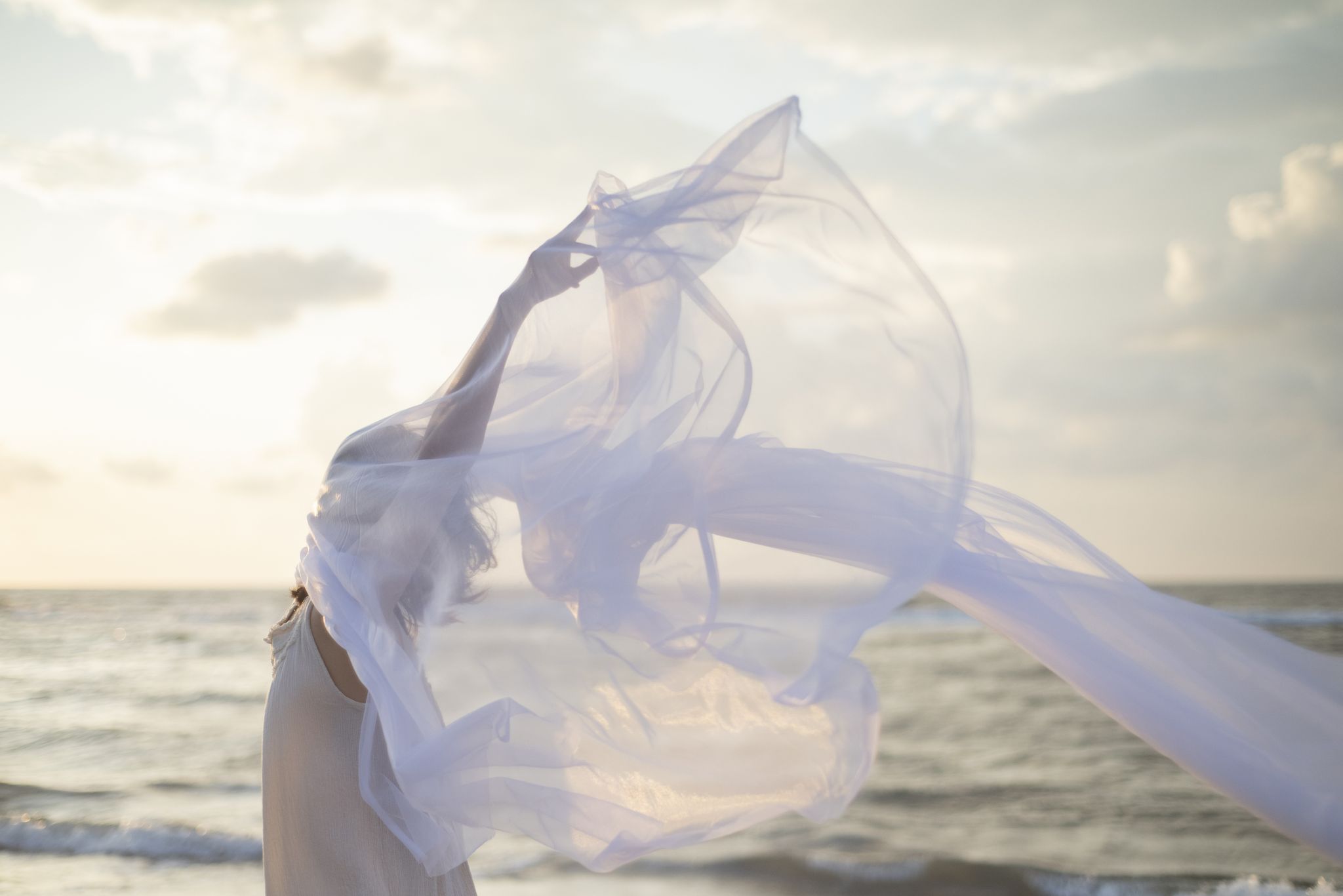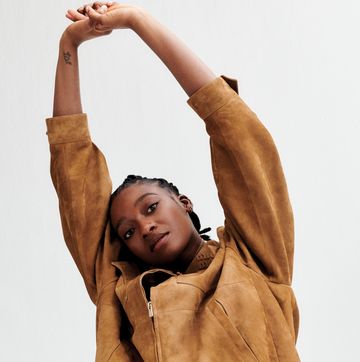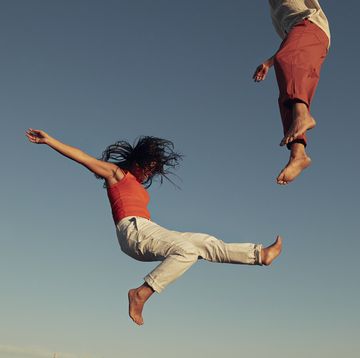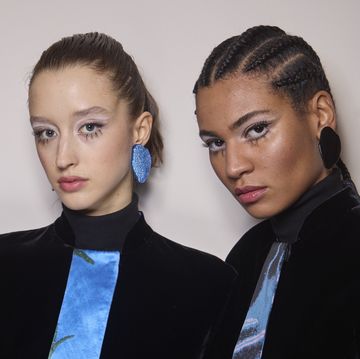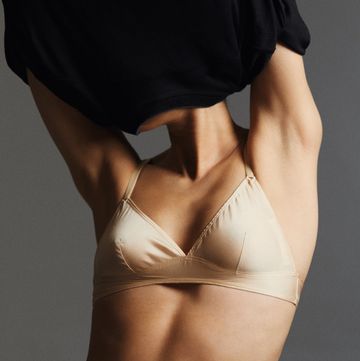Sometimes an idea burrows its way into the culture and takes up home there, building a little nest in our consciousness with continued repetition. One such concept was the pursuit of ‘happiness’. Later, there was ‘kindness’, and today ‘tenderness’. I tend to come to these things brittle with cynicism. I’ve argued in the past, for example, against the ‘happiness industry’, which through expensive interventions, like courses and coaches, sold the idea that you constantly needed to consume its products in order to achieve joy, thereby displacing your attention from the root of your unhappiness. But recently life events – I talk about family shock and tragedy in as neutral and passive a voice as possible, so as not to give it the drama it yearns for – have cracked something open in me.
Where once I might have approached the promotion of tenderness – a word to be found today in descriptions of art, films, and fashion – with a sighing sort of irritation, instead I now seek it out. I want that kindness, I want that gentle attention, the comfort of others, I need it. Just a crumb. Occasionally, a loaf.
And I’m not the only one: all across the world, people find themselves similarly cracked, whether with grief, or anxiety about the planet, or with the struggle to keep their families fed, or loneliness. No longer do we have the privilege of remaining brittle – we are now ready for the touch of a hand on our arm, we want only films about true love, only strangers who help with our bags, or bills, only the most perfect fruit.
Even those of us who aren’t cracked and struggling are yearning for tenderness, exhausted after years of irony, of daily grinding attempts at staying cool. The psychic distance that coolness re-quires feels painful now, another job on top of the three full-time careers in emotion we juggle daily. We crave the simple pleasures – like eye contact, and pasta cooked for us, or an impromptu conversation with our neighbour.
But just because we want tenderness doesn’t mean it comes easily. We’ve been conditioned to protect ourselves, to hide our vulnerabilities and approach strangers cautiously. In order to find the tenderness we crave, we have to re-educate ourselves in how to express love, pain and our desire for closeness. This process can take minutes or years; these lessons in becoming a person who is both soft enough to hear somebody else, but strong enough to get up in the morning and deal noisily with another day.
Here is where tenderness differs from the earlier trend of ‘kindness’, which, predictably, niggled me. #BeKind, the hashtag went on T-shirts and cupcakes, a sort of mummish scream across the internet, flattened in mean-ing and purpose, and often wielded asa weapon. And yes, whatever, kindness is good. But it’s not that simple. #BeEmpathic might have been better, but that’s a far harder ask, because it relies on putting yourself in a stranger’s shoes, rather than just smiling silently. Kindness means different things to different people, so to press our own idea of kindness on strangers is bound to invite disappointment.
Tenderness, however, is a chewier concept, one that encompasses pain and empathy, and maybe a little shame, too. I respect that, and I welcome it: this wet softness we’ve tried so long to bury. While my life continues to offer land-mines hidden under the carpet, new griefs exploding daily, I am happy to seethe world showing its bruises, reaching out to one other in the hope of being understood. Trying a little tenderness.
The day I picked up the keys to my first home was emotional. I remember running down to the beach, smiling and then sobbing. Happy tears. Even on a choppy afternoon, the decision to move to the Kent coast felt right. It had all happened so fast. Months before, I had burnt out for the second time that year and reached a point where I felt so low that I had started to convince myself that the only way to find peace was to stop existing. I was a shell of my ordinarily energetic, optimistic self, and the sea brought with it the possibility of slowing down – a new beginning, a metaphorical cleanse. I left the city in search of a calmer pace and the soothing properties of the open water, and have been welcomed with such love, softness and care.
I didn’t ever think that I, a south London-obsessed city girl (it’s even the location of my debut novel), could live anywhere else, but now I can’t imagine going back. The most beautiful thing I’ve discovered about living in a seaside town is the warmth of the community. Before deciding to move, my partner and I researched whether we, two queer Black people, could call this environment home. Thanet is, after all, the spiritual home of Nigel Farage, and I had dedicated the previous five years of my career to cultivating creative work spaces in whichI, and other marginalised groups, wouldn’t feel ‘other’. Still, although the community of people who look like me may be relatively small, its heart is strong, and the members are dynamic.
There’s a collective here called People Dem that holds space for Black and Brown people in this little seaside town. They deliberately engage with people of all ages and from all walks of life. The people I’ve met through this support network (they organise meet-ups, community learning and events) continue to inspire me through their eclectic interests and warmth. The beauty of small town living is that I’ve forged friendships with people I may not have otherwise crossed paths with. One of the most special bonds I’ve been forming is with an older, queer Black woman who moved to Kent almost two decades ago. Everything about her is gorgeous and she has taken the time to share her skills (she’s an avid agriculturalist) and experiences of being Black and queer from decades before we were alive, and on top of that, when our friends have visited, she’s welcomed them into the fold.
Making time for others is one of the most loving things we can do, and when you live in a place where things move a little slower, it feels like there is more space for genuine moments of connection rather than quick hellos in between work commitments. Invitations for a dip first thing in the morning, sloe-berry picking or cycling along the coast are nota rare occurrence. As a creative, it has been refreshing to enter an environment where works-in-progress are encouraged, rather than needing every piece of work to be polished.
Mutual support seems to be the un-spoken rule that governs how people interact with each other here – perhaps something to do with the fact that many of the people that have chosen to live here tend to be on their own healing journey, be that work-related stress, or the loss of loved ones leading them to reconsider the lives they want, or just those craving proximity to the sea. The gentleness I’ve experienced through living here hasn’t all been to do with the location for me, though. Much of the healing work I’ve been doing is embracing the fact that I’m allowed to feel gentleness. When you’ve constantly be enacting against what your body and mind want and need, a lot of rewiring needs to occur. Moving here has, in many ways, saved my life. I feel fortunate to live in a place where my community is bursting with creative energy and equal quantities of gentleness. There’s so much pain, suffering and loss that we are not in control of, and so, for me, part of this next chapter by the sea is about embracing the magic in softness.
It's not normal to take a break from swimming when you compete at Olympic level. At peak training, I would swim about 80 km a week and do five gym sessions. It’s obviously a lot to ask of your body, and your mind, but it’s what you’ve got to do if you want to be selected for the 10 km events I compete in. If you take time out of the water, it normally means you’re either quitting or you’re injured –and neither of those are good things.
Early in 2022, I failed to qualify for the Commonwealth Games and I was devastated. In the weeks afterwards, I wasn’t enjoying training – it felt like I was hitting a wall. Then, after one particularly tough session, I just felt broken. I got out of the pool and started crying into my towel. It was like, after 16 years, swimming had finally defeated me. I didn’t even have enough energy to speak to my coach. There aren’t many times in my career when I’ve felt like that. The only other time was when I got out of the water at the Tokyo Olympics and was so mad at myself about my performance. But this wasn’t anger, I just didn’t know what to think. I kept asking myself, Do I stop here, go home and end my career?
It took me a few days and some difficult conversations to make the decision to take a break. A lot of athletes are afraid of having those dialogues. Rightfully so: there are consequences to taking a rest, such as funding being cut, which I will have to deal with going into the next season. It’s not only athletes that find it hard to know when to take a break, any-one can struggle to understand when they need to pause and hit reset in their careers. But it’s important not to ignore the warning signs – mine came from my body: being constantly ill and never properly giving myself a chance to recover. Yes, it’s OK to push yourself, but you also need to trust your intuition. It’s much harder to come back from burnout than from a break.
I ended up taking four months off this summer, doing all the things that I’d been putting on hold because of swimming. I immediately went to get long, thick braids, which meant I wasn’t tempted to get back in the pool because it was too much effort to swim with them. My standards also slipped in terms of punctuality but, I’m not going to lie, it’s been refresh-ing to see a non-athlete’s perspective. We are super-harsh on ourselves, always striving for perfection. It’s been good for me to step out of that world and realise life is a lot bigger than your sport. There has been a lot of things to involve myself in that can hopefully help me create a better environment outside of sport.
When I wrote about being Team GB’s only Black swimmer in 2019, then became the first Black female swimmer to represent Great Britain at the Tokyo Olympics and secured a Nike deal, I didn’t expect to receive so much attention. I’ve always seen it as an uplifting pressure, but it probably has weighed on me more than I’ve appreciated. This time off has allowed me to explore that part of my identity. I’ve got more involved with the Black Swimming Association, and am looking to discover it more for myself rather than just being labelled as ‘that swimmer’.
I have had moments where I’ve questioned whether l will get back in the pool, but they’re never strong enough to overpower the fact that I really want to qualify for Paris 2024. I did go open water swimming with a friend during my break. It was actually the first time I’d swam recreationally like that. Rather than thinking I’ve got to hit this time, I simply enjoyed the sensation of swimming.
It’s not long until I’ll be back in the pool. I don’t know what my future in swimming looks like; I’m going to put all of my energy into it. I believe my body will get in the shape it needs to be in,I only need to make sure my mind trusts that I’ve put in the effort – that I deserve this, that I can do it. But even if it doesn’t happen for me – if I fail in what I try to achieve – I know that in taking a break I’ve done the right thing, and I can’t regret that.
I'm not an especially woo-woo person. But I recently read something about ‘body memory’: the idea that trauma imprints on your body, not just your mind. There’s a need to work backwards, to move from the outside in, through the medium of rest.
For years, the island of Lanzarote – at least in the British imagination – has been associated with beach holidays and terrific winds. Flung out into the Atlantic Ocean many miles from the coast of north-west Africa, it held a cluster of developments that catered to people who needed something easy to escape to for a week or two.
But Lanzarote is a verdant volcanic island, shaped by regulations that ensure its buildings are, for the most part, low-rise and white-washed. It is a place atone with its surroundings. So, a number of years ago, when I went there with my boyfriend following an agonising and drawn out abortion process, I found a place of healing, somewhere I could reconnect with the land, and my body.
We camped and walked. I ate dinner barefoot, wrapped in nothing but a green Kantha robe that, years later, when I had a baby, I would wear to breastfeed. But on that trip, I wore it because my body had failed me and I needed the wild and otherworldly uplands to act as a corrective. Having had something removed from me, I wanted to get something back. The sun helped, and the fact we showered outside, with a view of the ocean partially hidden by dragon trees and bougainvillea. Spending the days half naked, in gentle protest at the sanitary pads clogging up my wash bag, while eating plates of salty potatoes, pineapple and blackened fish, was a balm. And the wind! So sharp and unflagging, I occasionally struggled to breathe on the beach as it whipped off the sea. Yet, unable to do anything about the pain, the bleeding, the sadness, I eventually attempted doing nothing.
Then, one morning, a week in, the bleeding stopped. I had been swimming off the island of Graciosa, mostly nude, save a pair of blue bottoms to catch any blood, but when I got out, there was nothing there. I waited, and checked. Nothing. I felt the clothing and these against my skin and I began to feel – after months of disconnection and pain – like I might be myself again. Like it was finally over.
I have had two abortions in my life, which either makes me clumsy or lucky – possibly both. The first time, I was in my early twenties. I realised I was pregnant quite late, so my body had already began to grow and morph, announcing its intentions. It was not a decision I took lightly, and my body ached for days, but there was never really a choice to make in the first place: I knew I wasn’t going to have this baby. Outside the clinic someone had handed me a pro-life leaf-let, which I took out of politeness.
The second time was trickier. I was older and, on many levels, my partner and I were both ready, but neither of us was prepared to love something else singularly, in the way that I love my son now. I don’t regret the abortion, but I regret what happened after.
It had been early on in the pregnancy, so I had the option to take two pills, which I did. But something lingered. Bleeding was normal, they said, and so I ignored it and went to work in loose dark clothing and thick knickers. Weeks became months, and still the blood came.It started feeling normal to change a pad every few hours in the work loo. Three months in, I realised something was wrong. I took another pregnancy test and faintly, ambiguously, it told me I was still pregnant.
Panicked, I rang the clinic who sent me for a scan at my local hospital. There, it was determined that the abortion had been unsuccessful and I needed another procedure to remove ‘parts of the pregnancy’. Parts. This is very unusual, the stuff of small print, but it can happen. ‘I’m sorry, sweetheart,’ said the nurse, wheeling me out. ‘You’re going to have to go through it again.’ So I had another abortion. After that, we went to Lanzarote.
I took a pill for my second abortion but that simple action – swallowing something with water – belied the complexity of the process and the pain and confusion that ensued. Abortions can be messy and hard, but they are still ours to have and, though I did not talk about it very much, I now feel no shame about it – not in the way an American evangelist would have me feel.
In the United States, the Supreme Court’s overturning of the Roe v Wade decision, which has removed the federal right to a legal abortion that held for more than half a century, has thrown stories like these – everyday stories – back into the limelight. I grew up in the United Kingdom, and even though NorthernIreland did not decriminalise abortion until 2019, I know I took my right to abortion for granted because of howI was treated: calmly, sympathetically and without judgment. I know this because I barely thought about them until this summer.
Yet now, looking back, I see how there are moments, such as mine in Lanzarote, when having felt that I had lost my body, I found it again. In doing nothing and through rest, I found a refuge.
Reframing Rest
- THE NAP MINISTRY
Positioning naps as a form of liberation, The Nap Ministry aims to change your relationship with rest. Its Instagram account(@thenapministry) has evolved into a book written by the founder Tricia Hersey.
- REST FOR RESISTANCE
This grassroots organisation creates healing spaces for trans and queer people of colour, seeking to uplift and promote the need for collective and inner rest.restforresistance.com
- THE ART OF REST, BY CLAUDIA HAMMOND
This book examines the top 10 activities people find the most restful, diving into the science behind what works. A Durham University survey ranked reading as the most relaxing – so reading about rest is a double whammy.
- PAUSE, REST, BE BY OCTAVIA RAHEEM
The yoga teacher and activist Octavia Raheem takes readers on a journey to find stillness. You’ll learn restorative yoga poses, reflect on her powerful teachings and gain the tools to face change head on.
- DO PAUSE: YOU ARE NOT A TO DO LIST BY ROBERT POYNTON
Rest is more than just sleeping – it’s reclaiming ownership of your time. Discover practical tools that enhance your day-to-day by designing healthy habits and taking purposeful breaks.
